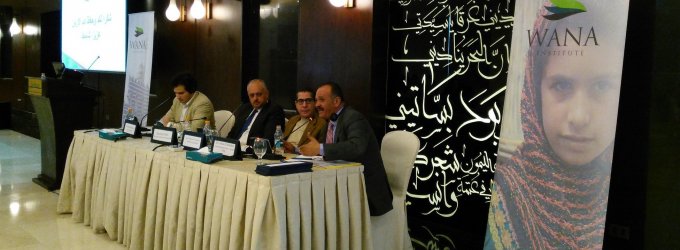-
New Opportunities for Jordanian Water Security
New Opportunities for Jordanian Water Security
Under the patronage of HRH Prince El Hassan bin Talal, the WANA institute in partnership with the University of Oxford and EcoPeace shared their research findings for a project funded by the British Council in a closing workshop on Tuesday 7th March.
The project aimed at finding new ways to increase water productivity in Jordan knowing that the Middle East is among the most water scarce regions in the world. While agriculture consumes the majority of water resources, its contribution to the GDP is low compared to other sectors. Many states in the region are struggling with high unemployment and population growth rates. In the years to come, increased population and economic growth increases the urgency to enhance agricultural production without exhausting natural resources.
The research studied how other countries managed to increase their agricultural production without putting too much pressure on their water resources and explored the potential outcomes if these methods were applied in Jordan and Palestine. The cross-regional analysis demonstrates the potential for policies that reduced agricultural water needs while maintaining current levels of crop production in Jordan. While Jordan has already demonstrated considerable gains in agricultural water productivity, our analysis suggests potential to enhance this further.
Through examination of Jordanian food import trends, our analysis also suggested potential for strategically increasing imports of certain crops without significantly impacting on Jordan’s food security. Finally, our work showed that current targets for treated wastewater use in agriculture are approaching levels achieved in regional best practice. In combination, our initial scoping analysis of efficiency food imports combined suggest Jordan could reduce its agricultural water use by up to 36%. Through efficiency alone, without reducing crop production, it could reduce by 27%.
The research not only looked at agricultural technologies, but also examined political and economic factors that can facilitate the necessary socio-economic and environmental changes. Our recommendations on agricultural water productivity could fit in with emerging thinking on greater cross-sector coordination and planning on water resource allocation and economic policy. Our recommendations could form one important instrument in the suite of development required to improve Jordanian water security and economic opportunities. The overall policy recommendations were shared during this closing workshop and stakeholders were invited to open discussions on future ways forward.

